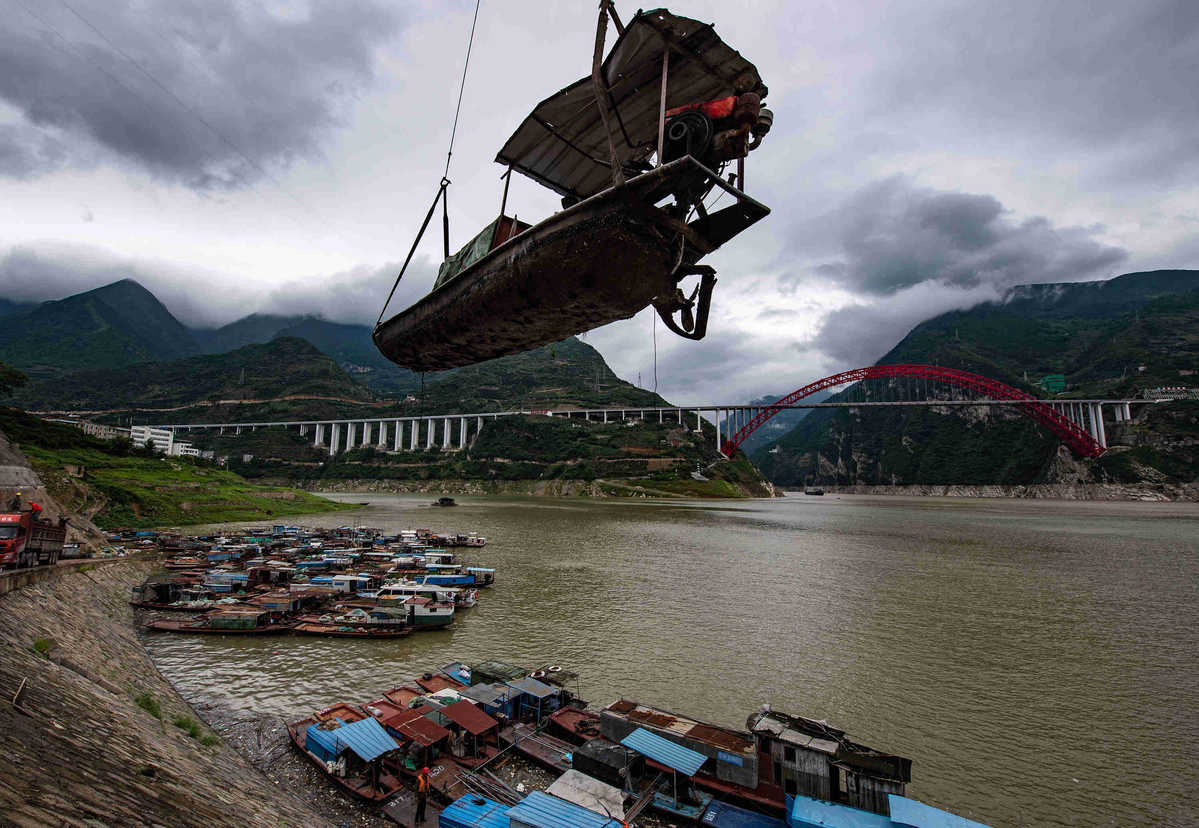Campaign to fight illegal fishing in Yangtze proving effective
Nationwide sales of illegally caught aquatic products from the Yangtze River have been effectively curbed following a special law enforcement campaign ahead of the implementation of a 10-year fishing ban in the river, the country's top market regulator said on Wednesday.
Nationwide sales of illegally caught aquatic products from the Yangtze River have been effectively curbed following a special law enforcement campaign ahead of the implementation of a 10-year fishing ban in the river, the country's top market regulator said on Wednesday.

A fishing boat is hoisted ashore for dismantling in Yichang's Zigui county, Hubei province, on July 13 in preparation for a 10-year fishing ban on the Yangtze River. [Photo/China Daily]
The campaign began in July. Yu Jun, spokesman of the State Administration for Market Regulation, said at a news conference that by the end of last month, market regulation authorities nationwide had completed more than 3.6 million inspections of various businesses related to aquatic products, including processors, food markets and restaurants.
They also conducted more than 2.3 million surveillance operations of various e-commerce platforms and urged the operators to remove 24,800 pieces of information regarding illegal trading of aquatic products related to the Yangtze, he said.
Market regulation authorities have handled 711 cases involving related violations since the beginning of the campaign, with more than 1,700 kilograms of aquatic products and 140 kg of endangered aquatic wildlife confiscated, he said.
The campaign was launched ahead of a strict fishing ban that takes effect on Jan 1. The ban outlaws nearly all types of fishing-except for scientific research-in the main channel of Asia's longest river, and in its major branches and two major lakes connected to it, for the next 10 years. The effort is aimed at restoring the deteriorating ecology of the Yangtze River due to overfishing.
The Yangtze used to teem with aquatic life. Illegal fishing and sales of wildlife from the river still occur in some areas along the waterway despite laws and regulations.
With intensified law enforcement following the launch of the campaign, illegal activities such as selling aquatic products taken from the river have been significantly suppressed, Yu said.
Between Sept 20 and 30, a special team dispatched by the administration conducted undercover inspections in 12 provinces, municipalities and an autonomous region along or near the river, including Shanghai and Anhui and Hubei provinces, covering 88 wholesale food markets, 121 shopping malls and supermarkets and 186 catering businesses, he said.
The team found most of the aquatic products sold in such places were common kinds of fish raised in nearby reservoirs and lakes, and most of the business owners said they did not have any aquatic wildlife from the Yangtze, he said.
Market regulation authorities will keep pushing law enforcement to break the sales chain of aquatic products illegally removed from the Yangtze so that the 10-year fishing ban can be effectively carried out, Yu said.
Yan Jun, the administration's head of law enforcement and inspection, said the sale, promotion or advertising of wildlife from the Yangtze may also result in punishment.

